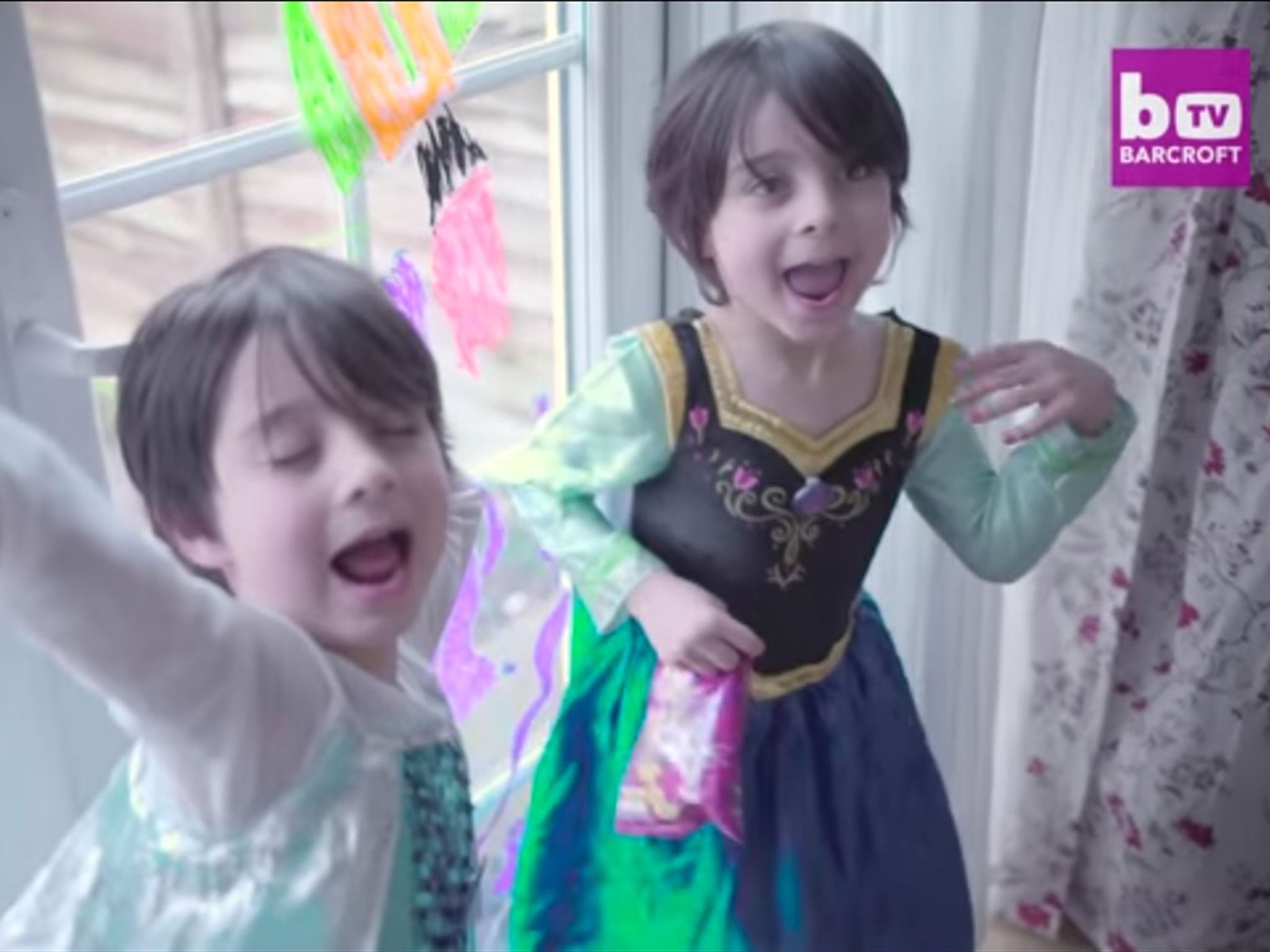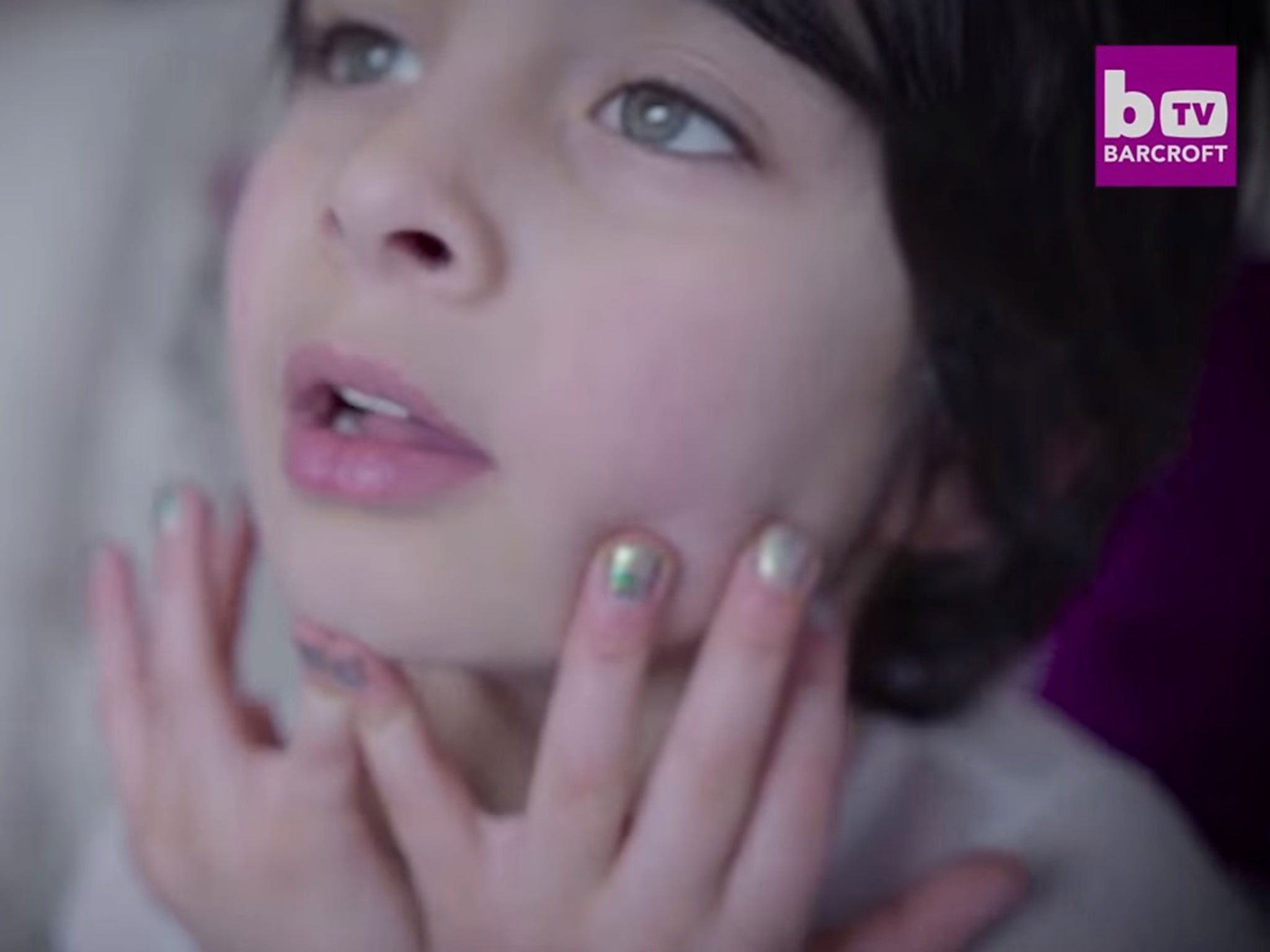Gender neutral children: Meet the new generation of parents with a gender-neutral approach to childhood
A growing number of parents are looking beyond the traditional gender binary when it comes to how they raise their children

At a home in Sheffield, 5-year-old twins spin around their bedroom in a dizzy blur of tutus, glittery nail varnish and make-up borrowed from mum’s dressing table. The scene is typical of many homes and many childhoods around the country. But with one exception- the twins are both boys.
Like a growing number of British children, Caleb and Kai are being raised as gender neutral. Their parents Gabriella and Joe Haughton-Malik describe their children as boys and use male pronouns, but don’t want their lives or their playtime to be restricted by traditional concepts of gender.

The twins are just as likely to don a princess gown as a pirate’s outfit. In a recent video interview with the family, the twins can be seen proudly showing off glittering manicures and hopping around in their Disney-esque gowns.
Joe explains: “If they can dress up as pirates and Darth Vader and zombies, why can’t they dress as princesses? It would be a bit hypocritical of me if I let them dress up as someone who marauders over the seven seas, murdering and stealing things but I can’t let them be a princess.”
He says that the approach he and his wife have to playtime is: “We let them do whatever they want to do, to a degree, so long as it’s safe.”

Gabriella explains that reactions to their gender neutral approach have been mixed: “We went to Ikea and we got there and they just get quite subconscious when they walk through the door. I think it’s more to do with other people, other children than it is to do with how they feel about it themselves. In their own space they are perfectly comfortable with it, it doesn’t faze them.”
She hopes that their approach to gendered play will help develop the twins’ imaginations and ability to question norms, saying: “We encourage them to question things, we encourage them to think for themselves. I don’t feel like we put limits on them of self-belief, they will have a lot of opportunities where they can do exactly what they want to do, they have no limits on their imagination in that sense.”
Joe says that their children’s happiness is their only priority and that gender identities means little by comparison, saying: “My hope for them in the future is that they’re happy. Other than that, I really don’t care what they do or who they are, as long as they’re good people and they’re happy. That’s all I want for them.”
Jennie Kermode, Chair of Trans Media Watch, told The Independent: “This approach isn’t simply about making space for those children who will grow up trans, it’s about encouraging imaginative play and helping children put themselves in others’ shoes (even literally).
“If boys are raised to believe there’s nothing shameful about girls’ clothes or girls’ toys, they will be more likely to treat women with respect when they grow up.”
Megan Perryman from the Let Toys Be Toys Campaign which campaigns for gender-neutral toys told The Independent: “Gender-neutral parenting means allowing your children to play with a range of toys and wear the clothes they feel comfortable in. Many parents raise their children this way, whether they refer to it as ‘gender neutral’ or not.
“In the last few years, however, parents have been increasingly rejecting the stereotypes being sold by big business and are encouraging their children to think for themselves.”
For any parents considering raising a child in a gender neutral way, Megan suggests: “Just let your child enjoy their childhood- if a girl likes dolls that’s absolutely fine as long as she doesn’t feel it’s her only option. A range of experience is healthy for all children. As is an appreciation of difference.”
Join our commenting forum
Join thought-provoking conversations, follow other Independent readers and see their replies
Comments